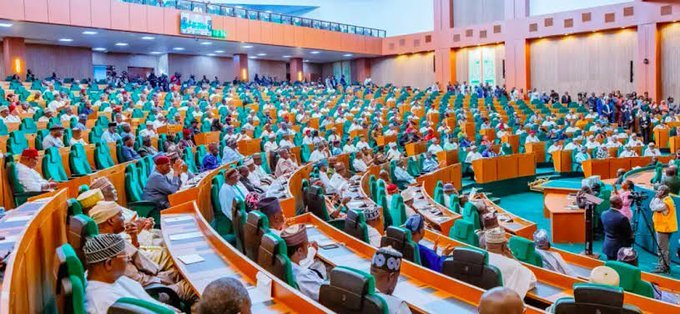Abuja, October 9, 2025 — The National Council of State has unanimously approved the appointment of Professor Joash Ojo Amupitan (SAN) as the substantive Chairman of the Independent National Electoral Commission (INEC), marking the end of Professor Mahmood Yakubu’s decade-long leadership at the electoral body.
President Bola Ahmed Tinubu presented Amupitan’s name during Thursday’s Council meeting at the Presidential Villa, Abuja, affirming his decision to fill the vacancy following Yakubu’s completion of his tenure. The President described Amupitan as “apolitical and eminently qualified,” noting that this appointment makes him the first person from Kogi State to lead the nation’s electoral umpire.
Context and Background
The End of Yakubu’s Tenure
Professor Mahmood Yakubu’s second and final term as INEC Chairman formally ended in October 2025, closing a historic decade of leadership that began in 2015. In anticipation of his exit, Yakubu handed over to the most senior National Commissioner, Dame May Agbamuche-Mbu, who has been serving in an acting capacity.
To recognize his years of service, President Tinubu conferred on Yakubu the national honour of Commander of the Order of the Niger (CON), commending his stewardship of the 2019 and 2023 general elections.
Constitutional and Procedural Foundations
The appointment of an INEC Chairman in Nigeria is governed by the 1999 Constitution (as amended). Under Section 153(1) and the Third Schedule, the President must consult with the National Council of State before nominating a candidate, who is subsequently screened and confirmed by the Senate.
Thursday’s Council meeting satisfied this constitutional consultation requirement. The unanimous endorsement of Amupitan’s appointment further strengthens its legitimacy and helps minimize political controversy around the process.
Historically, consensus approvals by the Council of State—such as that of Professor Attahiru Jega in 2010—have helped foster public trust and political stability around Nigeria’s electoral leadership transitions.
Who Is Professor Joash Ojo Amupitan?
Personal and Academic Background
- Date of Birth: April 25, 1967
- State of Origin: Aiyetoro Gbede, Ijumu Local Government Area, Kogi State (North-Central Nigeria)
- Education: Obtained his LL.B from the University of Jos and was called to the Nigerian Bar in 1988. He later earned an LL.M in 1993 and a Ph.D. in Law in 2007, both from the University of Jos.
- Professional Recognition: Elevated to the prestigious rank of Senior Advocate of Nigeria (SAN) in 2014.
Academic, Administrative and Professional Roles
- University of Jos (UNIJOS): Served as Head of Department of Public Law, Dean of the Faculty of Law, and Chairman of the Committee of Deans and Directors.
- Deputy Vice Chancellor (Administration): Currently holds this position at UNIJOS.
- Pro-Chancellor / Chairman of Council: Also serves as the Pro-Chancellor and Chairman of the Governing Council of Joseph Ayo Babalola University, Osun State.
- Board and Council Memberships: Member of the Nigerian Institute of Advanced Legal Studies, Council of Legal Education, and various corporate boards.
- Academic Contributions: Author of numerous books and research papers in fields including Company Law, Corporate Governance, Privatisation Law, and Evidence Law.
Amupitan is widely respected within Nigeria’s legal and academic communities for his integrity, intellectual depth, and administrative discipline. Supporters believe these qualities will prove critical as he takes charge of INEC during a crucial period for Nigeria’s democracy.
Reaction at the Council of State
Following the Thursday meeting, several members of the Council described the decision as “unanimous and uncontroversial,” citing Amupitan’s apolitical profile and record of service.
Governor Ahmed Usman Ododo of Kogi State hailed the appointment as “a proud moment for Kogi and a victory for merit,” emphasizing that Amupitan’s selection underscores President Tinubu’s commitment to inclusivity and federal character.
Former Heads of State present at the meeting reportedly expressed confidence that Amupitan’s academic and legal background will bring renewed credibility and professionalism to INEC operations.
President Tinubu, while addressing the Council, reaffirmed that the nomination followed due constitutional process and pledged full executive support for INEC’s independence and operational autonomy.
The Council’s unanimous endorsement ensures that the next stage—Senate confirmation—will likely proceed without significant opposition, marking a rare moment of consensus in Nigeria’s often polarized political environment.
What Happens Next: Senate Confirmation and Expectations
Following the Council’s approval, the President is expected to forward Professor Amupitan’s name to the Senate for screening and confirmation. The Senate will examine his qualifications, integrity record, and readiness to manage the nation’s complex electoral system.
If confirmed, Amupitan will be sworn in as the substantive INEC Chairman, succeeding Mahmood Yakubu. His first major tasks will include stabilizing internal structures, reviewing ongoing electoral reforms, and preparing the Commission for upcoming gubernatorial and legislative elections.
Observers anticipate that Amupitan’s confirmation process will be swift, given the broad bipartisan support signaled by the Council of State’s unanimous approval.
Challenges and Expectations
1. Restoring Credibility and Public Trust
In recent years, INEC has faced criticism over alleged irregularities, logistical failures, and challenges with technology such as the BVAS and IReV systems. Restoring confidence among political parties, civil society, and voters will be a top priority for the incoming chairman.
2. Ensuring Institutional Independence
Despite assurances of non-partisanship, the independence of INEC remains a recurring issue in Nigeria’s democratic journey. Amupitan will need to assert the Commission’s autonomy, balance political pressures, and resist executive interference while maintaining constructive engagement with stakeholders.
3. Strengthening Electoral Infrastructure
Amupitan’s administration will inherit key structural and logistical challenges, including election funding, staff training, voter registration, and the protection of election materials. Modernizing INEC’s technological infrastructure and securing its databases will be essential for credible elections.
4. Security and Electoral Violence
Security remains a persistent concern, particularly in conflict-prone regions of the North-East and parts of the South-East. Coordinating effectively with security agencies to ensure safe, free, and fair elections will be a defining test of Amupitan’s leadership.
5. Managing Political Expectations
Amupitan will face immense pressure from politicians and interest groups seeking to influence electoral outcomes. Navigating such pressures while maintaining neutrality will demand a high degree of tact, legal clarity, and firmness.
Significance for Kogi State and National Representation
Professor Amupitan’s appointment marks the first time someone from Kogi State has risen to the position of INEC Chairman. This development is being celebrated in the North-Central region as a testament to federal inclusiveness and recognition of merit-based leadership.
For Kogi, the appointment represents both a symbolic and substantive gain — positioning the state as a key contributor to Nigeria’s governance and electoral administration.
The Road Ahead
With Nigeria’s next electoral cycle approaching, Professor Amupitan faces the formidable task of rebuilding confidence in an institution often seen as the backbone of democracy. His success will depend on transparency, reform-mindedness, and his ability to balance the demands of political players with the expectations of citizens yearning for credible elections.
Stakeholders, both domestic and international, will closely monitor his early decisions — especially concerning internal reforms, staff accountability, and the use of technology in future elections.
Conclusion
The unanimous approval by the National Council of State signals a strong endorsement of Professor Joash Ojo Amupitan’s competence, character, and capacity to lead the Independent National Electoral Commission into a new era.
As the nomination proceeds to the Senate for confirmation, Nigerians will be watching keenly. Expectations are high that his tenure will bring renewed professionalism, institutional integrity, and public trust to the electoral process.
If confirmed, Amupitan will shoulder one of Nigeria’s most demanding national responsibilities — safeguarding the integrity of elections and upholding the people’s democratic will. His leadership, beginning in the coming weeks, will likely shape the trajectory of Nigeria’s democracy for years to come.












